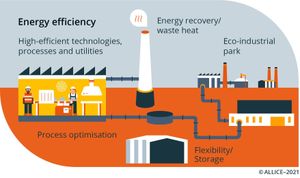Gabonese voters headed to the polls on Saturday to decide on a new constitution, which the ruling junta claims will usher in a fresh chapter for the oil-rich nation, ending decades of dynastic rule. Approximately 860,000 registered voters faced the pivotal choice between casting green ballots for “yes” or red ballots for “no.” This referendum is noteworthy as it follows the recent upheaval following the ousting of President Ali Bongo Ondimba, the last of the Bongo family to rule the country.<\/p>
Voter engagement has been heavily promoted on state media and through social media platforms, with officials urging citizens to make their vote count. Polling did not start on time at many locations around Libreville due to delays, with materials still being distributed beyond the scheduled time of 7:00 am. By 6:00 pm, when polls were set to close, the crowd size was expected to play a significant role in determining the outcome. Confounding matters, the junta extended the night curfew from midnight to 5:00 am for the duration of the referendum without clarifying when this would conclude.
The proposed constitution envisions substantial reforms, including limiting the presidency to two seven-year terms, abolishing the position of prime minister, and prohibiting dynastic power transfers. Under the new rules, candidates would need to have Gabonese parentage and spouses, effectively barring the deposed Bongo family from future presidential contests. Transitional President General Brice Oligui Nguema, who was seen casting his vote and asserting, “We have a date with history,” has hinted at running for the presidential election scheduled for August 2025 after vowing to return power to civilians within two years.
Mixed Reactions to Proposed Constitution
Reactions to the proposed constitution have been mixed among the populace. Supporters like Nathalie Badzoko, 33, expressed trust in the junta, albeit admitting to not having reviewed all 173 articles of the draft. “I have faith in them,” she said. Critics, on the other hand, argue the new constitution primarily serves to consolidate power for Oligui, with many pointing out its failure to prevent him from potentially running for office.
This referendum follows the military coup deposing Ali Bongo just after he claimed victory in a disputed election. Bongo's rule of 14 years commenced after he succeeded his father, Omar Bongo, who had been in power for over 41 years, during which both were accused of systemic corruption and mismanagement. The junta has promised transparency during the referendum and has invited international observers, absent during the previous contentious elections. Provisional results are expected shortly, with the final outcomes to be certified by the constitutional court.
A mid-October Afrobarometer survey indicated broad public sentiment, with nearly 87% of respondents believing the country was “heading in the right direction.” Still, pressing issues like unemployment, healthcare access, infrastructure, security, and rising living costs loom large on voters' minds. Notably, over 46% of respondents expressed “great confidence” in Oligui, positioning him as the front-runner if elections were held immediately.
Reports suggest voters are enthusiastic yet cautious. Many attendees at polling stations expressed hope for the future, citing the longstanding rule of the Bongos and the changes the junta promises with the new constitution. “This is our chance to make history,” general sentiment echoed among the voters.
Indeed, the stakes are high as voters grapple with the push for reform and the urgency to reshape Gabonese governance. There’s palpable tension as ballots are cast, amid reminders of past political grievances. Gabon’s military leaders are confident, framing this referendum as both historical and necessary for the country’s political maturation. Those opposed to the junta’s constitution, including organized civil society groups, argue for the necessity of genuine democracy, urging the civilian populace to remain vigilant against potential power grabs by the current regime.
After the ballots are counted, Gabonese officials will work on drafting electoral laws, establishing electoral bodies, and preparing for the important presidential, parliamentary, and local elections slated for 2025. Observers are poised to monitor the situation closely, turning their attention to the results as they await to see if the new constitution can truly signal the end of military rule or if it merely replaces one form of governance with another, perpetuating cycles of control under the guise of reform.
The outcomes of the referendum will indicate whether Gabon can finally break free from its history of dynastic leadership and oppressive governance. While the junta presents the new constitution as liberatory, critics caution against projecting optimism too quickly, urging citizens to advocate for the sustained push toward genuine democratic reform.



